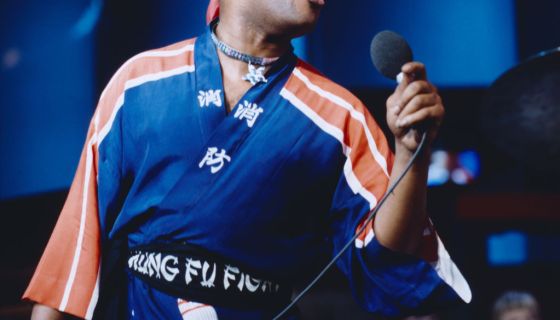@_higz
Even when they have the best of intentions, sometimes artists can come off as extremely offensive to the audience they’re trying to entertain.
You may have seen a few song-related controversies in recent times, including the viral “spaz” debate involving song lyrics by Lizzo and Beyoncé, respectively. However, a mishap when it comes to verbiage is only the tip of the iceberg when discussing some of the PR nightmares that’ve occurred throughout the history of commercial music releases.
LIKE US ON FACEBOOK. FOLLOW US ON INSTAGRAM & TWITTER. SUBSCRIBE TO OUR YOUTUBE.
More below on how Bey and Liz both avoided being labeled as an ableist due to their music, via Variety:
“The lyric was criticized as ableist and offensive on social media, and it even inspired an essay published on The Guardian in which writer Hannah Diviney wrote, ‘Beyoncé’s commitment to storytelling musically and visually is unparalleled, as is her power to have the world paying attention to the narratives, struggles and nuanced lived experience of being a Black woman… But that doesn’t excuse her use of ableist language.’
Beyoncé’s decision to remove the ableist lyric follows Lizzo’s decision to do the same. Lizzo used the same term in her song ‘Grrrls’ off her latest album, ‘Special.’ In the original track, Lizzo sang: ‘Hold my bag, bitch, hold my bag/ Do you see this shit? I’m a spaz.’ The new version of the song finds Lizzo singing: ‘Hold my bag, bitch, Hold my bag/ Do you see this shit? Hold me back.’
‘Let’s make one thing clear: I never want to promote derogatory language,’ Lizzo wrote on social media while announcing the lyric change. The singer added that she was ‘proud’ to have taken the steps to ‘listen and take action.’”
Now, we’re not talking about the ones who meant to be offensive — N.W.A. couldn’t have been more intentional with the release of “F*ck Tha Police.” The songs highlighted below however received a far different reaction by the public than what was originally planned, either by way of taboo subject matter, both culturally and racially insensitive lyrics or metaphors that proved to be way too sexually suggestive.
For example, who would’ve thought “Kung Fu Fighting” would rile up such a race debate over the years?!
Source: United Archives / Getty
STAY INFORMED! CLICK HERE TO SIGN UP FOR OUR NEWSLETTER!
READ MORE STORIES ON BLACKAMERICAWEB.COM:
HEAD TO THE BLACKAMERICAWEB.COM HOMEPAGE
The racial undertones were too much for the times when this was released back in 1939. However, “Strange Fruit” would go on to be credited with helping to spark the civil rights movement.
As if the title wasn’t offensive enough, Fergie had to go and spell out the controversial word at hand repeatedly throughout the bridge! Thankfully BEP was able to clean it up in time in order to have success with a more acceptable version titled “Let’s Get It Started.”
“Will you come inside me” can be taken many different ways, but the overall sultriness of this song gives us a strong idea of what the late R&B icon was not-so-coyly referring to.
Disturbing more than anything, this hard-to-watch video and song about an overly obsessed fan can send chills down the spine of any music lover. Oddly enough, it topped the charts internationally in multiple countries.
With lyrics generally described as “rapey” by critics and a multimillion dollar copyright infringement lawsuit filed and won by the estate of Marvin Gaye, this global #1 hit definitely ended up doing more bad than good.
The mock Asian accent in the chorus is cringey on its own, but his follow-up bar — “Whatever she said, than I’m that!” — doubles down on how problematic this song comes off as.
Given the current conversation surrounding premature pregnancy and abortion rights, it’s not surprising that many didn’t understand in the ’80s why a pop superstar would make it a topic of conversation for a hit single. Lucky for Madge, she proved naysayers wrong by rising straight to the top of the charts.
The Oriental riff heard throughout “Kung Fu Fighting” has become stereotypical for many in Asian culture, even considering the fact that the song itself originally topped the Billboard Hot 100 and created an overall cultural phenomenon.
We live in a much more uncensored musical climate now, but it was still seen as risqué back in 1992 to hear the “MF” being spelled out explicitly on the chorus. Prince himself even stopped performing the song live while he was still here due to the overt horniness of the chorus.
An Urban One Brand
Copyright © 2022 Interactive One, LLC. All Rights Reserved.
Powered by WordPress VIP
An Urban One Brand
Copyright © 2022 Interactive One, LLC. All Rights Reserved.
Powered by WordPress VIP

